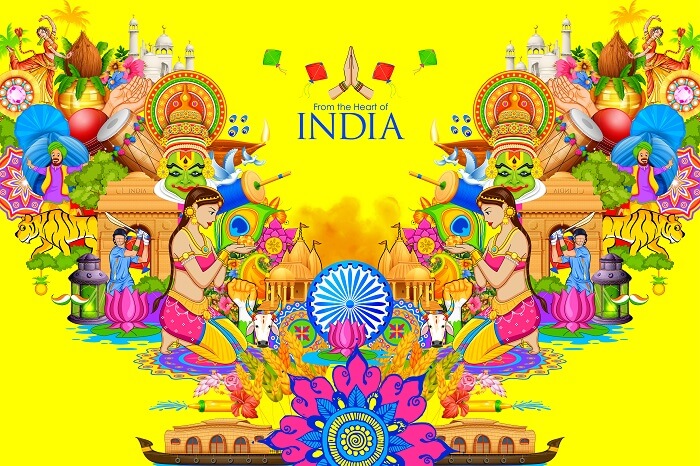Importance of Cultural Education
Embark on a cultural odyssey through our insightful blog, "Nurturing Identity: The Crucial Role of Cultural Education in India." Dive into the diverse tapestry of India's traditions, languages, and customs as we explore the profound impact of cultural education on personal development, social cohesion, and the preservation of heritage. Discover how this holistic approach extends beyond textbooks, shaping well-rounded individuals who embrace their roots and contribute to a harmonious society. Join us on a journey of self-discovery, celebrating the richness of India's cultural legacy and understanding its pivotal role in shaping informed and proud citizens.
Team NEP Mitra
1/11/20243 min read


India, a land of rich cultural heritage and diversity, has always been known for its vibrant traditions, customs, and art forms. From ancient scriptures to classical dance forms, every aspect of Indian culture holds immense significance. Cultural education plays a crucial role in preserving and promoting these traditions, while also shaping the identity and worldview of individuals in India. In this blog post, we will explore the multidimensional importance of cultural education for individuals in India, and how it contributes to their personal growth, social cohesion, and national pride.
Preserving Heritage and Tradition
Cultural education acts as a bridge between the past and the present, ensuring that the rich heritage and traditions of India are passed down to future generations. By learning about their cultural roots, individuals gain a deeper understanding and appreciation for the customs, rituals, and values that have shaped their society. Through the study of ancient texts, folklore, and art forms, individuals can connect with their ancestors and preserve the legacy of their cultural heritage.
Moreover, cultural education helps in safeguarding endangered art forms and traditional practices that are at risk of being forgotten. By learning and practicing these art forms, individuals not only contribute to their preservation but also become ambassadors of their culture, promoting its beauty and significance to the world.
Enhancing Personal Growth
Cultural education goes beyond simply preserving traditions; it also plays a pivotal role in an individual's personal growth and development. By immersing themselves in the study of their culture, individuals gain a sense of identity and belonging. They develop a strong foundation of values, ethics, and moral principles that guide their actions and shape their character.
Furthermore, cultural education fosters creativity and innovation. It encourages individuals to think critically, explore different perspectives, and find unique solutions to problems. By studying various art forms, individuals develop skills such as discipline, patience, and attention to detail, which are transferable to other areas of life.
Additionally, cultural education promotes empathy and understanding. By learning about different cultures within India, individuals develop a broader worldview and become more accepting of diversity. This understanding of different perspectives helps in building harmonious relationships within communities and across the nation.
Strengthening Social Cohesion
India is a melting pot of diverse cultures, languages, and traditions. Cultural education plays a vital role in fostering social cohesion by promoting intercultural understanding and respect. By learning about the customs and traditions of different communities, individuals develop a sense of appreciation for diversity and are more likely to embrace inclusivity.
Cultural education also acts as a catalyst for social change. It raises awareness about social issues and challenges prevalent in society, such as gender inequality, caste discrimination, and environmental degradation. By incorporating these topics into the curriculum, cultural education encourages individuals to become active participants in creating a more equitable and sustainable society.
Moreover, cultural education provides a platform for dialogue and exchange of ideas between different communities. It encourages individuals to engage in meaningful conversations, share their experiences, and celebrate their shared heritage. This intercultural dialogue helps in bridging the gaps between different communities and promotes a sense of unity and harmony.
Fostering National Pride
Cultural education plays a crucial role in fostering national pride and a sense of belonging to the nation. By learning about the history, traditions, and achievements of India, individuals develop a deep-rooted love and respect for their country. They become aware of the sacrifices made by their ancestors and the struggles faced during the freedom movement.
Furthermore, cultural education instills a sense of responsibility towards preserving and promoting Indian culture. Individuals become ambassadors of their heritage, spreading awareness about the richness and diversity of Indian traditions. This sense of pride and responsibility contributes to the overall development and progress of the nation.
Conclusion
Cultural education is of paramount importance for individuals in India. It not only preserves and promotes the rich cultural heritage but also enhances personal growth, strengthens social cohesion, and fosters national pride. By incorporating cultural education into the curriculum and encouraging individuals to actively engage with their cultural roots, India can ensure the preservation of its traditions while nurturing a generation that is proud of its heritage and capable of contributing to the nation's growth.
Empowering Education, Transforming Lives
info@karmanyagurutvam.com